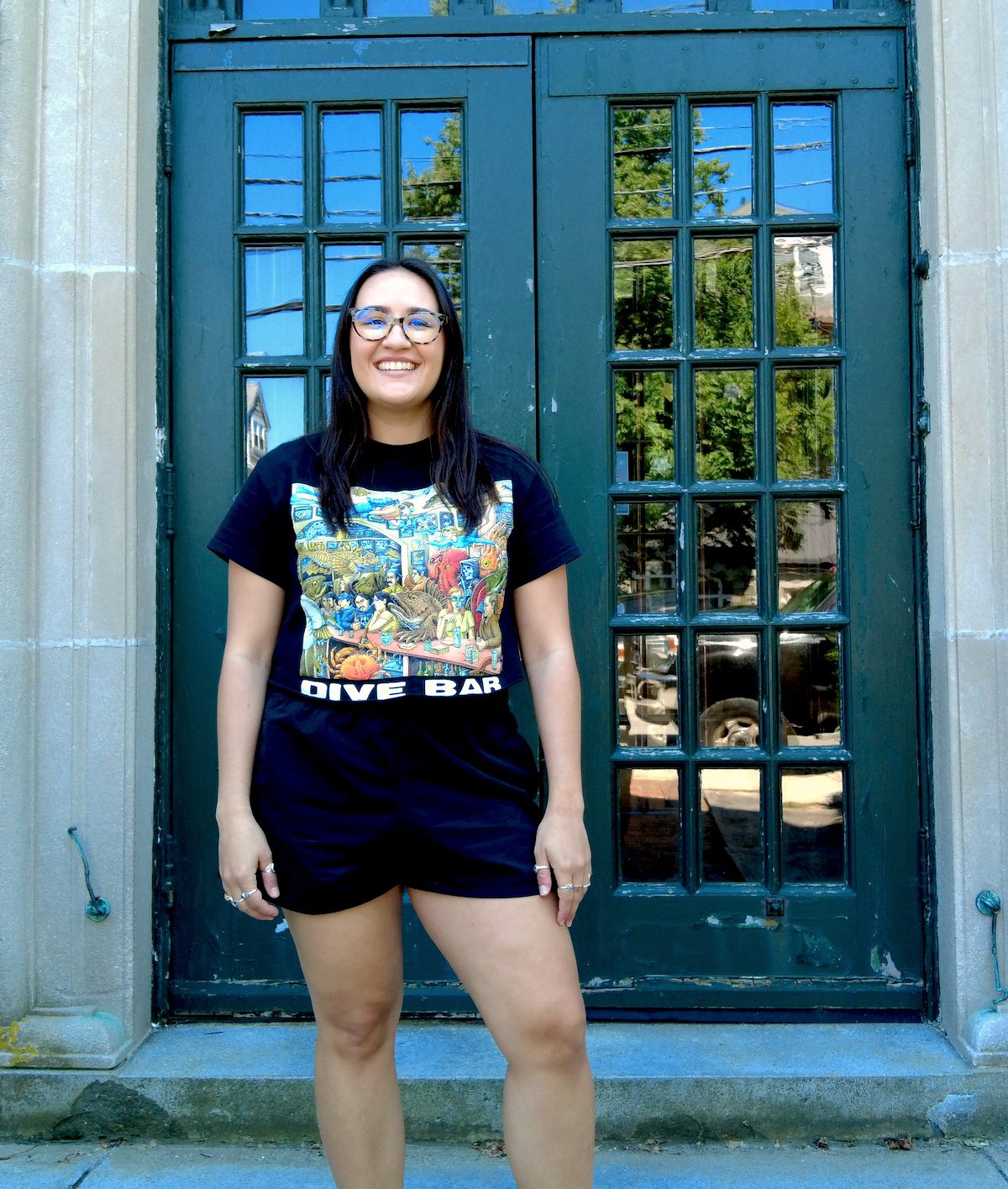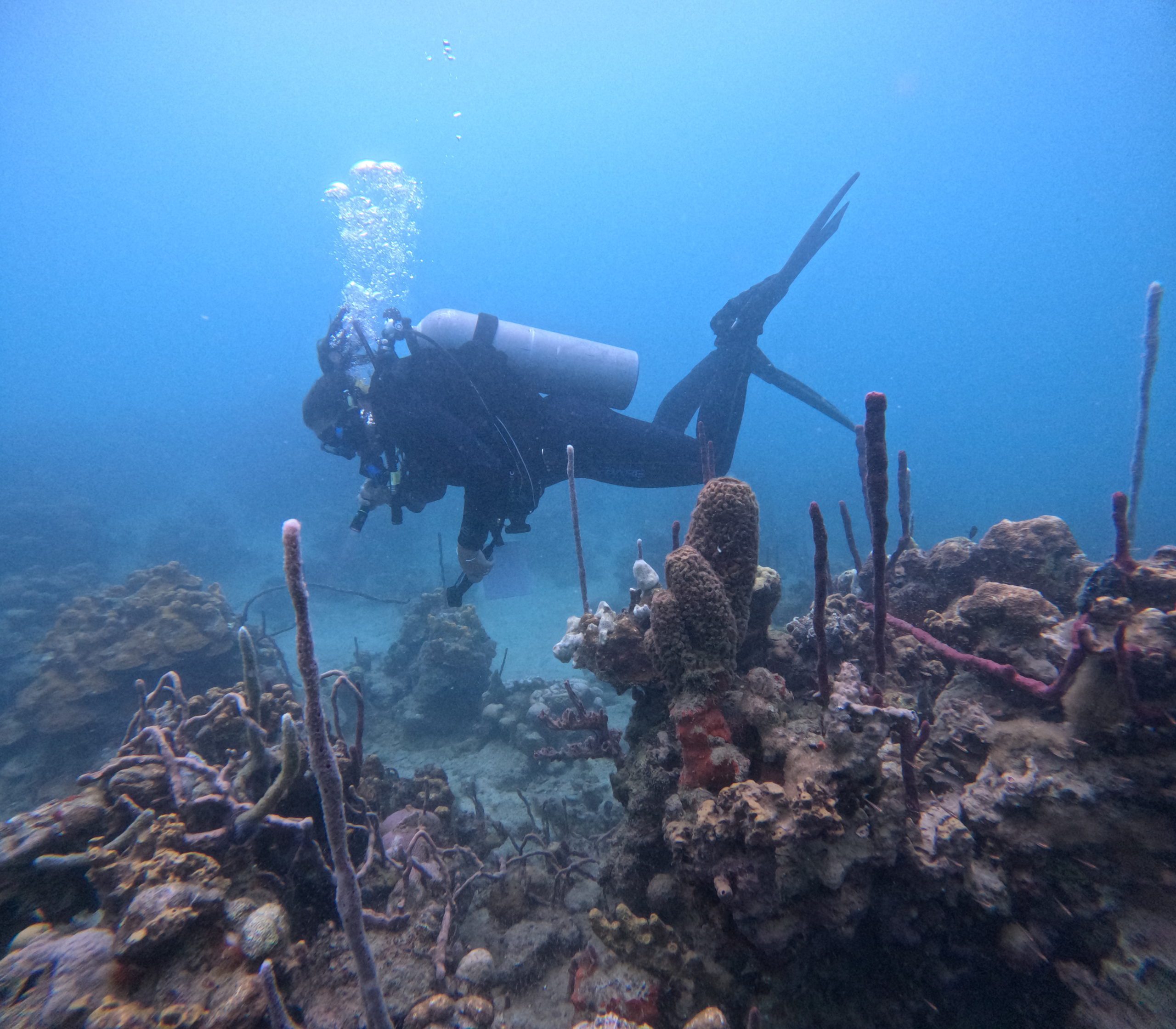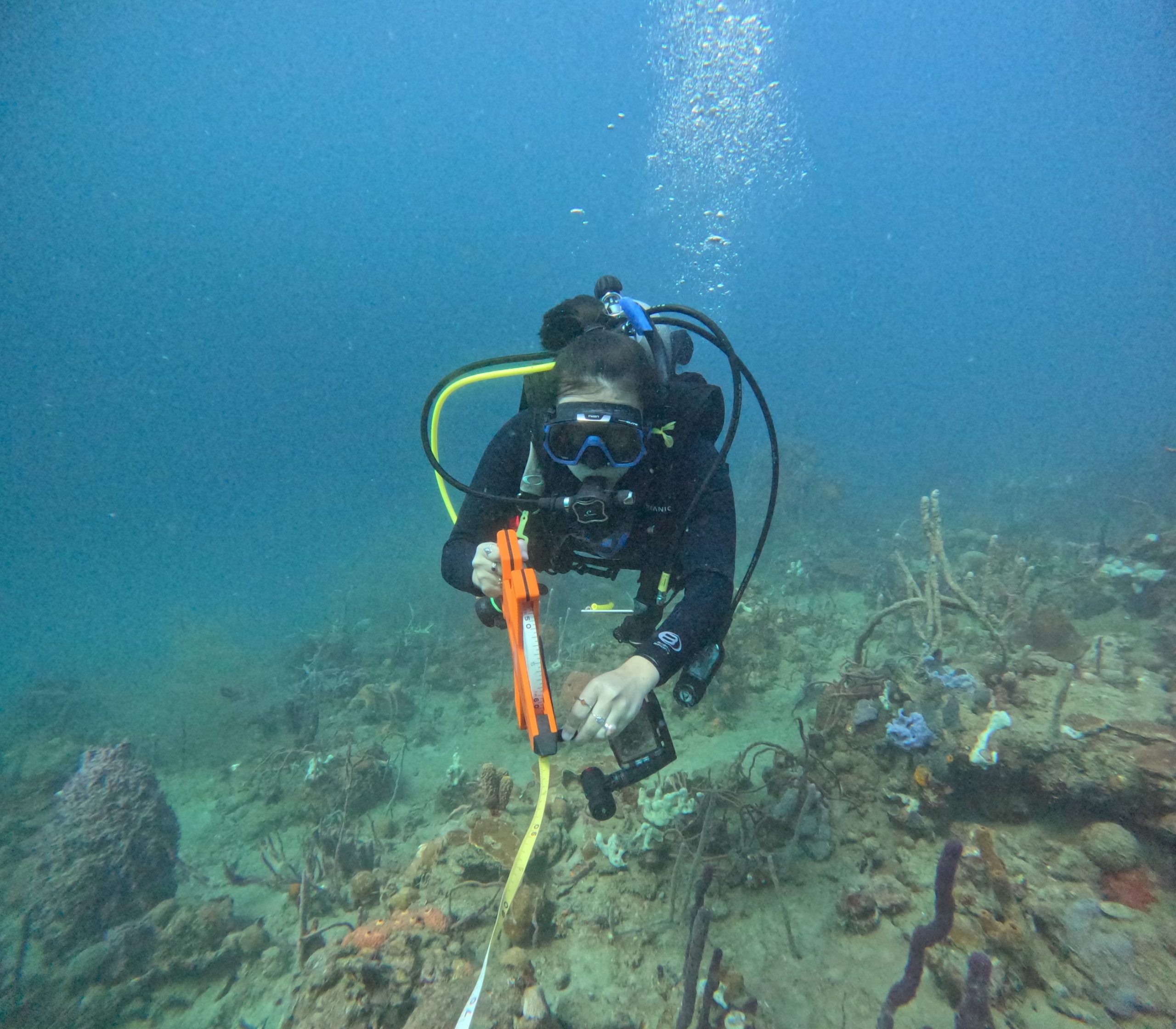Ashland Aguilar
I’m from Corona, California, it’s inland and not very pretty because it is mostly freeways. So growing up, we would always go to the beaches, like Huntington and Newport. For undergrad, I went to Cal Poly Humboldt in Northern California, and that's when I first took a phycology course. I've never enjoyed a class so much in my life! We got to do such cool field work, camping out and looking for different types of algae. That's where I learned to press and I still press algae today, just for fun. Ever since then I knew I wanted to do something with algae and kelp.
My undergrad was challenging. It took a while, and by the end I was pretty burnt out. I wasn't sure if I wanted to stay in academia, so I took a few years off. I worked as a table games dealer at a casino and then decided I did want to go back to school. I was able to save up money and got into grad school at Northeastern University in the Three Seas program.
In order to do the scientific diving part of the program, you need to have some previous dive experience. I was dealing with some ongoing health issues at that time, so I had to get ear surgery to be able to equalize while diving. And I remember my mom asking me, “Why are you going to get ear surgery for something you've never done? How do you know that you're going to like doing it?” And I just knew that I would.
The Three Seas program is very field-intensive and research focused. We spent four months at the Marine Science Center in Nahant, then two months at the Smithsonian in Panama, followed by two months at Friday Harbor Labs in Washington. There was one dive in Panama where we surfaced during the most spectacular sunset. In that moment, I remember I just felt so much joy. Knowing how hard I worked to get there, feeling so thankful to be at such an incredible place during a beautiful sunset with all my friends.
My first dive in a kelp forest was just last year, when I went as part of the WHOI Bell Lab to South Africa. It was amazing. Kelp forests are so rich and full of life and biodiversity, and the way that the sun streams through the canopy, it's so stunning. Kelp forests are foundation species, so they provide habitat for other ecologically and economically important species, along with providing several benefits and services to humans.
If I could tell anything to my younger self, it would be that it's okay if you don't have a direct and linear path. Let's take a little reroute, take some time, trust yourself, and you will figure things out. If nothing goes to plan, it'll all still work itself out.
I'm a first-generation Latina and it was sometimes an isolating feeling in college. I never had any Latina professors. Pursuing higher education, especially a master’s degree, wasn’t always something I believed was possible for myself. Imposter syndrome is very real, and so it's hard for me to sometimes step away from that and let myself be like, wow, I am really proud of myself.
I was recently a keynote speaker for an outreach event at Northeastern’s Marine Science Symposium, where they hosted a bunch of local high schools. One of the teachers come up to me afterwards, and he said, “Hey, I'm really glad that you talked about being first generation in the sciences. Most of my students are first generation.” And hearing that was pretty special.




